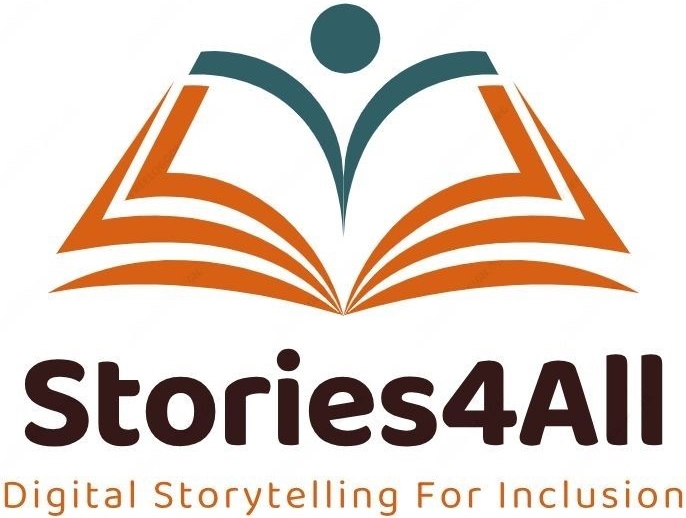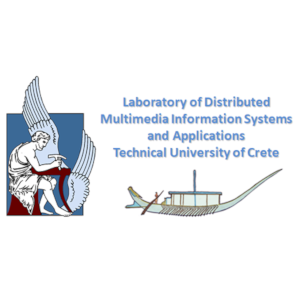Johannes Gutenberg-University Mainz (JGU - Coordinator)
The Center for Continuing Education (ZWW) is a central facility of Johannes Gutenberg University (JGU), which is located in Mainz, Germany. With more than 31.000 students from about 130 nations, Johannes Gutenberg University in Mainz is one of the twelve largest universities in Germany. The JGU is a research institution of national and international recognition and emphasizes the value of research-oriented teaching. JGU lives the notion of the civic university closely collaborating with the community it is part of. This comprises in particular the areas of LLL, knowledge exchange, technology transfer, and the interface university/school. In addition to teaching and research, the JGU sees continuing education as a core area of its mission and has responded to the ever-increasing need for “Lifelong Learning”. The Center of Continuing Education at the University of Mainz exists for 50 years and organises annually more than 360 seminars and conferences on a variety of different topics. It collaborates with more than 180 professional teachers, many of them professors and scientists. The focus of the Center for Continuing Education lies on Vocational Education and Training, Continuing Professional Development and Cross-Skilling. An important component of the work areas of the Center for Continuing Education is the organization of teacher training and developing and implementing digital concepts for different areas. The teacher training programme includes courses and workshops for teachers from all subjects and school types. Digitalisation, the use of digital media in teaching, and the implementation of digital concepts play a very important role in this working area. We were also very involved in the digital project-Group Digital Change in Teaching and Studies at the University of Mainz. The aim of the project-group is to jointly analyse the current status and to advise on the development perspectives of JGU with regard to the digital change in teaching and studies.
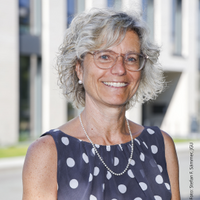
Dr. Beate Hörr, M.A.
Since 2000 Beate Hörr is the Director of the Center for Lifelong Learning at the JGU. Besides many areas of ULLL on national level the center has as an important priority are large number of international projects in different topics.
She is a deputy member of the Regional Council for Continuing Education in Rhineland-Palatinate (Germany), vice-president of the Regional Association of Universities and Sciences in Rhineland-Palatinate and vice-president of the European Universities Continuing Education Network Eucen. She is former President of the German National Network for Lifelong Learning (www.dgwf.net) and still active member.
She holds a PhD from the Deutsche Forschungsgemeinschaft, DFG Graduate School and began her career as an assistant professor of comparative literature and theatre studies at the Johannes Gutenberg University in Mainz. She was a DAAD Visiting Professor for German as a Foreign Language and Theatre Studies at the Universidad de los Andes, Santa Fe in Bogotá and was head of the Academic Office for Foreign Affairs at the University of Education in Freiburg.
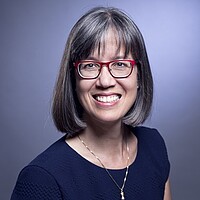
Dipl.-Päd. Iris Thimm-Netenjakob, B.A. USA
Iris Thimm-Netenjakob is Head of International Affairs at the Center for Lifelong Learning of the JGU which includes a large number Erasmus+ projects, the JGU Summerschool, Intercultural Trainings. She has been working in international projects and in international contexts for more than 25 years: in Brussels at the Erasmus Office, at the DAAD (German National Agency for Erasmus) and in different HEIs as project coordinator and head of International Relations. She holds her master’s degree in education sciences from the JGU, Germany; bachelor’s degree from Goshen College, Indiana, USA; Certified Intercultural Trainer and Consultant, and Academy for Scientific Education of the University of Heidelberg, Germany. She lived, studied and worked in different countries including Switzerland, the Netherlands, France, the USA, Belgium and Germany. Coming from a Eurasian background herself, she has got first-hand experience living in and with different cultures. Her topics are international, intercultural education, university engagement for social innovation and social inclusion.
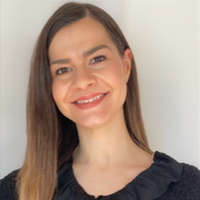
Lea-Joelina Fleck is coordinator for Erasmus+ projects and research assistant, holding a degree in education sciences and economics with a focus on lifelong learning and media education. She is currently completing her Master of Arts in International/Transnational Social Pedagogy. Her professional background includes working abroad in the USA and South Africa in the field of social work with marginalized groups, as well as in Germany in the higher education sector, specifically with refugee and immigrant women in vocational training. Currently, she is involved in two projects concerning social inclusion and digitalization. Her research interests revolve biographical research and storytelling, with a particular emphasis on transnational living environments/relationships. Lea has gained project experience in service-learning with marginalized groups and in digital teaching.
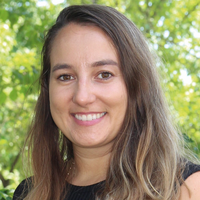
Milena Ivanova is coordinator of Erasmus+ projects and research assistant and lecturer in the field of teacher trainings for foreign language teachers. She has two first degrees (in Media Sciences and in Teaching for German as second language, Spanish and Russian, Linguistics and Literature) from the Humboldt University of Berlin and the Pontifical Catholic University of Peru and two Master’s degrees in Teaching in Secondary and Higher Education from JGU Mainz. She did research and teaching visits in Peru, Colombia, Costa Rica and Ukraine. Her work interests focus on the development of digital concepts, methodic and didactic in language learning and teaching, and transcultural communication. Currently, she is working on two projects about learning with digital media, social inclusion and heterogeneity in everyday school life, a field that she worked since 2015.
Milena is a certified Intercultural and Diversity Trainer from the Academy for Diversity and Innovation,Barcelona, Spain and for InterKultur, Hamburg.
Technical University of Crete (TUC/MUSIC - Greece)
TUC/MUSIC was established in 1990 in the Dep. of Electronics and Computer Engineering of the Technical University of Crete, Chania, Crete, Greece. It is a centre of research, development, and teaching in the areas of distributed information systems, application engineering, computer graphics, and simulation engineering. TUC/MUSIC performs research in the areas of high-performance distributed multimedia architectures, information systems offering advanced functionalities, database systems, information retrieval systems, digital libraries, service-oriented architectures, and graphics systems. In the area of application engineering, TUC/MUSIC performs research in the topics of large distributed multimedia delivery networks for intelligent TV applications, semantic interoperability infrastructures, web and mobile based application development methodologies, natural language processing, as well as standard-based software infrastructures for multimedia applications in areas such as e-learning, culture and tourism, business applications, TV Applications and medicine. It also has extensive experience in usability aspects of modern applications, the design of intuitive and efficient graphical user interfaces, both for the desktop and the web, and their evaluation following standard methodologies.
TUC participated and participates in a number of projects (ALICE, e-ARTinED, MultiLib, MUSILIB, rhythm4inclusion, m2-cm, TIM, TIM^2) focusing on the integration of arts into formal and non-formal learning settings. Based on the experience from these projects, TUC will lead the work regarding the setup of an infrastructure to promote the use of arts for social inclusion in schools and will also involve local schools in the pilot activities of the project.
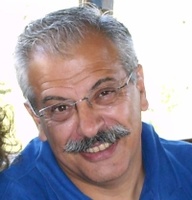
Prof. Emer. Stavros Christodoulakis - Former director of TUC/MUSIC, Professor Emeritus of the Department of Electrical and Computer Engineering of TUC; member of the Scientific Board of the DELOS II Network of Excellence on Digital Libraries; co-coordinator of the DELOS II Cluster “Audio-visual and non-traditional objects”.
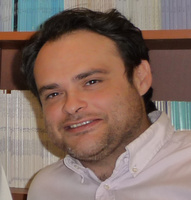
Nektarios Moumoutzis - Researcher. Holds a MEng in Computer Engineering and a PhD in Informatics. He has been involved in various research projects and his expertise includes project management, design and implementation of modern information systems, object-oriented databases, and eLearning systems. Over the past 10 years, his research activity has focused on designing, developing, evaluating, and exploiting digital applications and systems in creativity, learning, and cultural heritage. including digital games as an attractive learning environment linking schools with culture. He has 25 years of experience in coordinating national and European projects.
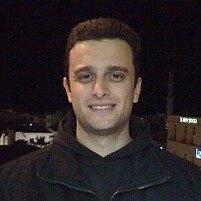
Marios Christoulakis, Researcher - Learning Technologies Expert. He holds an Engineering Diploma and a M.Sc. in Electronic and Computer Engineering. He is a PhD candidate at the School of Architecture in the Technical University of Crete. He has been working in TUC/MUSIC since 2006 and has been involved in various European research projects. He has extensive experience in the design and implementation of software systems. She is the chief architect of the eShadow digital storytelling platform.
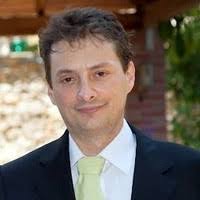
Nikos Pappas - Research Engineer – Learning Technologies Expert. He holds an Engineering Diploma and a M.Sc. in Electronic and Computer Engineering. He has been working in TUC/MUSIC since 1992 and has been involved in various European research projects related to multimedia information systems, eLearning and digital libraries. He is the chief architect and responsible for the development and evolution of the Coursevo platform supporting communities of practice and training programmes.
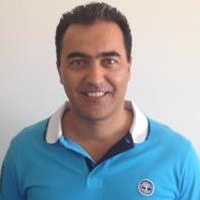
Yiannis Maragkoudakis - Researcher - Financial expert. He is an electronic and computer engineer (Dipl.-Eng.). He has been working in TUC/MUSIC since 1992 and has been involved in various EU research projects. His expertise includes project management and coordination of research projects, parallel systems, multimedia servers, eLearning systems and applications.

Christos Ioannidis - Research Software Engineer (Greece) - Christos Ioannidis is a Research Software Engineer based in Athens, Greece. He holds a Master's degree in Electrical and Computer Engineering, complemented by substantial experience in architecting and developing scalable software solutions.
His professional expertise includes AI-powered systems, Human-Computer Interaction, and User Experience (UX) design, emphasizing the practical translation of innovative research into intuitive applications. Christos actively engages in the development of Software-as-a-Service (SaaS) projects, focusing on rapid prototyping, integration of AI-enhanced features, and seamless user experiences.
Christos is particularly dedicated to bridging academic research and practical software development, utilizing his interdisciplinary skill set to deliver meaningful and innovative technological solutions.
University of West Attica (UWA - Greece)
University of West Attica (UNIWA) is a higher education institute founded in March 2018 by the National Law 4521. It originates from three historical and dynamic educational and research entities in the region of Attica, the Technological Educational Institute of Athens, the Piraeus University of Applied Sciences and the National School of Public Health. The mission of UNIWA is to provide education of excellent quality in the fields of study, scientific breakthroughs with globally reputation-communicated to the society- and promote culture, art and civilization. UNIWA includes twenty-seven departments, organized into six Schools, covering a wide range of disciplines. It has approximately 57,800 undergraduate, 5,500 postgraduate and 780 doctoral students enrolled.
One of the 27 departments, under the School of Administrative, Economics and Social sciences, is the department of Early Childhood Education and care (ECEC) participating in this proposed project – the only pedagogical department in the university. The development of the academic profile of the Department, over the last decades, is mainly linked to important institutional changes, such as the fourth – year educational study, the augmentation of the academic qualifications of the teaching staff, the updating of the undergraduate program of studies, the exchange Erasmus + program with many Universities in other European countries. The academic profile of the Department has recently been upgraded with the establishment of an interdepartmental Postgraduate program between the Department of Early Childhood Education and Care and the Department of Biomedical Sciences of the University of West Attica. The department and it programme has been evaluated by the « Hellenic Authority for Higher Education » with « Excellent » (December 2022). Three members of the ECEC department will participate in the project, two assistant professors with rich expertise in the education of young children and one PhD student who is researching digital play and technology enhanced toys for children under four years of age. Undergraduate students of the department will also participate in the project (unpaid).
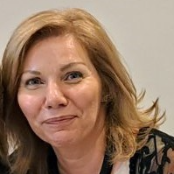
Maria Hatzigianni - Assistant Professor - Early Childhood and Care - Her extensive professional background stems from over 13 years of teaching experience in early childhood education in Greece and Australia, coupled with more than a decade as an academic. Presently, she serves as an assistant professor at the University of West Attica in Athens, Greece, and holds an honorary position at the University of Melbourne in Australia. Additionally, Maria is a key member of the University Committee overseeing the "Centre of Teaching and Learning in Higher Education" since 2022. Her academic pursuits concentrate on the integration of digital technologies in early childhood education, focusing on children aged from birth to 8 years old. She earned her PhD from the University of Melbourne on a full scholarship, exploring the utilization of new technologies among young children and its influence on their self-esteem. Maria's contributions to the field are extensive, reflected in her wide-ranging publications, as evidenced in her ORCID profile: https://orcid.org/0000-0001-9378-2598 and Google Scholar profile: https://scholar.google.com.au/citations?user=YZrISU0AAAAJ&hl=en
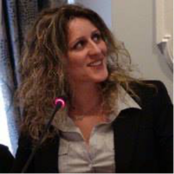
Eleni Katsiada - Assistant Professor - Early Childhood Education and Care - Eleni’s professional background stems from over 17 years of teaching experience in early childhood education and care in Greece. She has also worked for over a decade as a teaching assistant at the Department of Preschool Education of the Technological Institute of Athens, Greece. Presently, she serves as an assistant professor at the University of West Attica in Athens, Greece, Department of Early Childhood Education and Care. Her research interests focus on children aged from birth to 3 years old and their interactions with peers, adults and their early childhood education and care environment. She earned her Masters and PhD degrees from Sheffield Hallam University (UK) on a full scholarship from the Greek State Scholarship Foundation (IKY). Eleni’s contributions to the field can be found on her ORCID profile: https://orcid.org/0000-0001-7249-9742 and Google Scholar profile: https://scholar.google.com/citations?user=gbg5TPgAAAAJ&hl=el&oi=ao
University of Warsaw (UW - Poland)
The University of Warsaw (UW) is the largest university in Poland and a leading research centre in the country. The University of Warsaw is ranked first among the Horizon 2020 beneficiaries in Poland regarding the number of participants and coordination. In 2022, UW researchers participated in over 60 projects financed from the Horizon 2020, of which there were 9 European Research Grants. Under the Horizon Europe (HE) programme UW academics received funding for over 40 projects.
The Faculty of Education at the University of Warsaw provides the highest level of education for future pedagogues, teachers, socio-cultural animators, educators, educational policy specialists and therapists. The Faculty of Education’s long-standing tradition of training teachers of early primary education. By working with kindergartens, primary schools and other forms of educational institutions, the Faculty actively contributes to the ongoing professional development of teachers. Building on its extensive experience, the Faculty of Education has been a key participant in numerous EU grants, one of the most recent being Stories4All. The research team of the Faculty of Education at the University of Warsaw has been involved in the Stories4All project from the very beginning. The researchers are actively involved in most of the project activities, from preparing the research tools, conducting the research, implementing the platform in the national context and taking care of the dissemination of the project in Poland. The Faculty will host the first meeting of the project participants in 2024. The Polish team look forward to popularising digital storytelling among students and teachers cooperating with the Faculty of Education through classes and meetings promoting the idea.

Paulina Marchlik, PhD is an assistant professor at the Faculty of Education, University of Warsaw. Paulina holds a master's degree in English linguistics. She teaches classes in English, e.g. English language teaching methodology and Phonetics. She supervises teaching internships for students of the Graduate Programme in Teaching English to Young Learners. She has collaborated on European research projects since 2013, such as Reducing Early School Leaving in Europe (RESL.eu; 2013–2018), Inclusive Education and Social Support to Tackle Inequalities in Society (ISOTIS; 2017–2019). She was the leader of the Polish team of an Erasmus+ project: A Blog as open learning platform for the field of Early Childhood Education about Research and Innovation to support Disadvantaged and Diverse children (BECERID; 2018–2020). She is interested in teaching English to young learners, teacher training, professional development of teachers, early leaving from education and training, and youth at risk of exclusion. In Stories4All, Paulina is the leader of the Polish team.
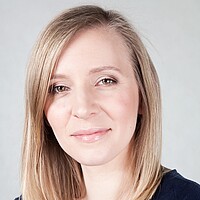
Kamila Wichrowska, PhD is an assistant professor at the Faculty of Education, University of Warsaw. She is an academic teacher and a researcher. Kamila teaches subjects related to English language teaching methodology, the use of didactic materials in English language teaching, preschool and early childhood education. She is a member of the Teaching Board of the Faculty of Education. She has participated in several European projects as a researcher, e.g. Erasmus+ projects: PARTICIPA:
Professional Development Tools Supporting Participation Rights in Early Childhood Education (2019–2022), BRIDGING: Building Educational Bridges in the City (2018-2021), and Horizon project: ISOTIS: Inclusive Education and Social Support to Tackle Inequalities in Society (2017–2019). Her research interests are focused on the topics of motivation, early education and care – preschools and primary school and Teaching English to Young Learners.
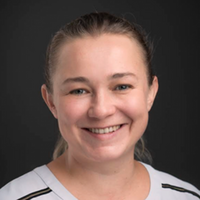
Olga Wysłowska, PhD is an assistant professor at the Faculty of Education, University of Warsaw. She works in the Department of Educational Policy and Social Research on Education. Olga teaches several courses, such as Qualitative Research Methodology in Pedagogy, Use of Computer Programmes in the Collection and Analysis of Qualitative Data, and Quality of ECEC, for students of the Faculty of Pedagogy and the PhD students at the University of Warsaw. Over the past years, she has been involved in numerous European research and education projects, including CARE (FP7), ISOTIS (Horizon 2020), BECERID (ERASMUS +), QualityMatters (PTDC), PARTICIPA (Erasmus+). Olga is a former primary school teacher and now works with a number of public and non-public organisations supporting professionals to shape practices based on contemporary research findings. Her research interests are in the quality of ECEC services, professionalisation of ECEC staff and qualitative research methods.
Pelican School (PELICAN - CZ)
PELICAN provides educational opportunities in the field of higher and adult education. Since it was founded in 2002 the school has transformed from a school of languages to an adult education centre. PELICAN collaborates with a number of private and state educational organizations and authorities, including universities, adult education centres and job centres. It has developed its own method of language learning called Pelican Active Learning System (PALS), which encourages and promotes the students' activity, independence and creativity and enhances the process of language acquisition by incorporating elements of Computer-Assisted Language Learning, Communicative Language Teaching and Language Immersion. The school has also developed its own method of teacher training in PALS. PELICAN develops methods of teaching of foreign languages and provides training for preschool, primary, secondary, vocational and higher education. This entails collaboration with schools and universities in the Czech Republic and abroad.
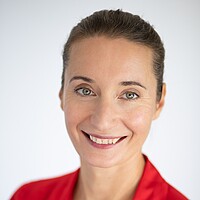
Mgr. Dagmar Ráček Pelikánová is a founder and executive director of PELICAN. She has comprehensive experience from a number of international projects. She has a master's degree in andragogy, adult education and educational management from Charles University in Prague.

Patricie Jurasova is a PR manager and a teacher trainer. She graduated from Intercultural communication and Czech language at the Masaryk University, Brno. She has been dealing with preparation, coordination and administration of European projects from 2018 as a project coordinator, data collector and researcher.

Karolína Petrová, M.A., graduated with a degree in Foreign Language Teaching. She has extensive experience working with children and teenagers, including those from socially disadvantaged backgrounds, such as migrants and youth from under-resourced communities. With a strong focus on inclusion and communication, she brings both expertise and empathy to her educational work.
